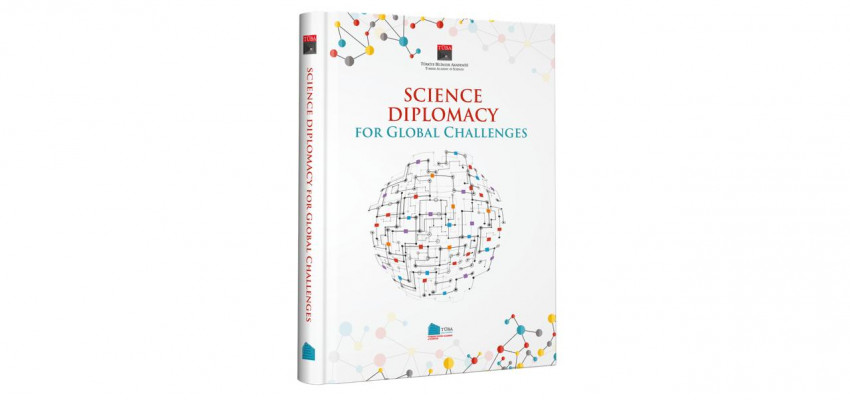The Global Science Diplomacy Book: "Science Diplomacy for Global Challenges" Published

The book Science Diplomacy for Global Challenges, prepared in collaboration between TÜBA and the Association of Academies and Societies of Sciences in Asia (AASSA), has been published. This comprehensive work approaches the most important issues of our time from the perspective of scientific cooperation and diplomacy.
Edited by TÜBA President Prof. Dr. Muzaffer Şeker and Assoc. Prof. Dr. Mürsel Doğrul, the work is structured around two main sections: “The Foundations and Frameworks of Science Diplomacy” and “Science Diplomacy in Sustainable Development and Global Challenges.” It consists of 21 distinct chapters contributed by over 35 authors.
Focusing on how science diplomacy can be a tool for trust and cooperation, the study details—through concrete examples—how scientific knowledge can be leveraged as diplomatic power in addressing global challenges such as climate change, energy security, public health, and food crises. The book places particular emphasis on the role of young academics and researchers in this ecosystem.
It also highlights the contributions of prominent international scientific institutions, including the World Science Forum (WSF), International Science Council (ISC), UNESCO, American Association for the Advancement of Science (AAAS), The World Academy of Sciences (TWAS), InterAcademy Partnership (IAP), and All European Academies (ALLEA), as key actors in the global architecture of science diplomacy.
TÜBA President Prof. Dr. Muzaffer Şeker highlighted that the book is valuable not only for academics and scientists, but also for science policymakers, diplomats and all other stakeholders interested in global governance. In his foreword, Prof. Şeker noted that science diplomacy has become essential for achieving peace, sustainability and global understanding in today's world. “This book is not just a publication; it is an expression of a joint effort that transcends borders — a path from science to peace. As TÜBA, we have placed science diplomacy at the centre of our international vision”.
Assoc. Prof. Dr. Mürsel Doğrul, the Turkish Young Academy representative, emphasized how the book explores the crucial role of science academies in society and their potential to address contemporary challenges. It asks whether science can solve urgent problems, how scientific communication and advice work, and how the balance between science and diplomacy can be struck. It also highlights the importance of young science academies and considers how global issues such as energy, sustainability and migration might be tackled through science diplomacy.